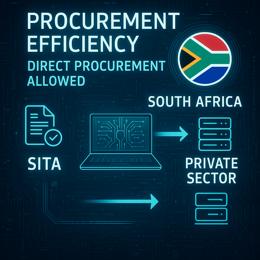Image created by AI
RTMC Accused of Misinforming Public on Driving Licence Validity Debate
The Road Traffic Management Corporation (RTMC) is currently embroiled in controversy for failing to extend the driving licence card validity period, despite its own research suggesting otherwise, potentially misleading the public with unsubstantiated claims. This dispute has been brought to light by the Organization Undoing Tax Abuse (OUTA) which has called for transparency and accountability from the RTMC and the Department of Transport.
In 2022, research conducted for the RTMC by consultancy firm Zutari recommended increasing the driving licence card validity period for drivers of light vehicles from five to eight years. The proposed extension was grounded in evidence suggesting that the average validity period in countries with better road safety records was around 10 years. The existing production machinery, which is reportedly 26 years old, was also flagged as an urgent replacement need, indicating inefficiencies in the current card production system.
Despite the recommendations, the RTMC has not acted on the study's findings. Instead, RTMC CEO Makhosini Msibi cited another non-existent study to state that an extension would not be possible due to accidents related to communicable and other diseases. When OUTA utilized the Promotion of Access to Information Act to obtain this second report, the RTMC withheld it citing confidentiality, whereas the Department of Transport revealed no such report existed.
OUTA's Executive Director Stefanie Fick expressed concern that financial interests, namely a tender to purchase a new card printing machine, may underpin the reluctance to extend the card validity period. These suspicions arise alongside accusations of maladministration within the RTMC and a substandard record of road safety management.
With South Africa's road safety considered a national crisis, it is imperative for state entities to partner with civil organizations to forge progressive change. OUTA remains steadfast in its call for collaboration and for the newly appointed Minister of Transport, Barbara Creecy, to address these critical issues, having so far received no response to their outreach.
The situation is intensified by the RTMC's alleged dismissal of the research they commissioned and the subsequent revelation of their reliance on a study that does neither exist in the department’s records nor has been shared with the public. This incident casts doubt on the RTMC's decision-making process and transparency, ultimately questioning the integrity of the administration of South Africa’s driving licence system.










